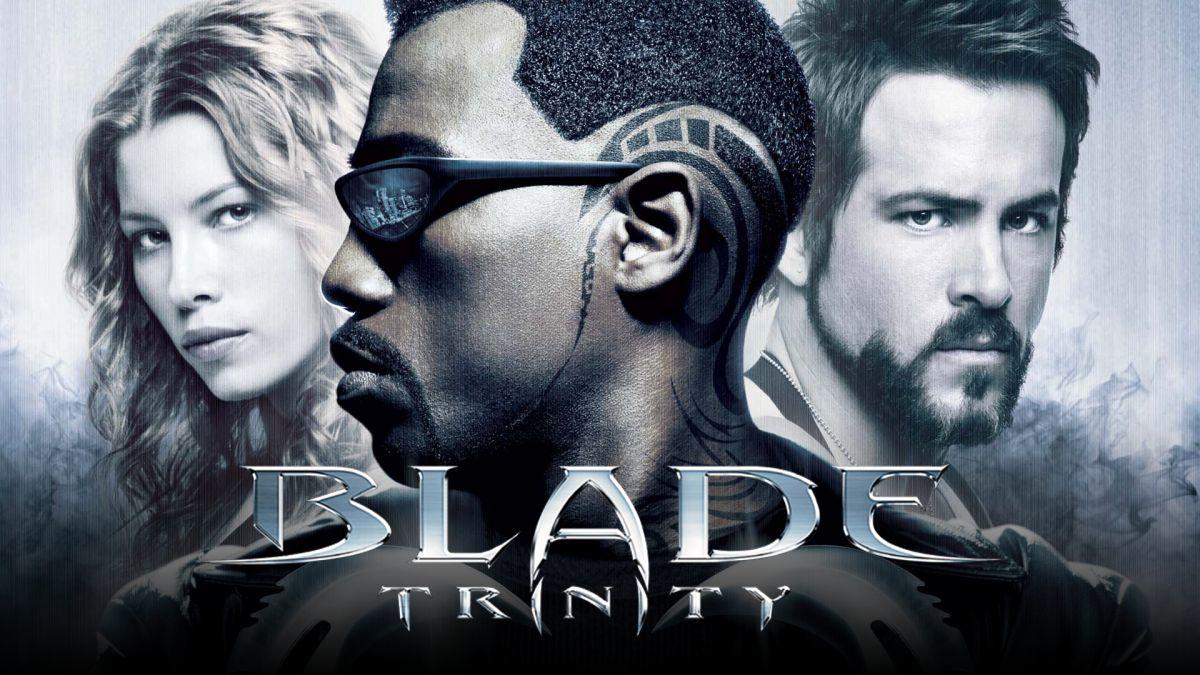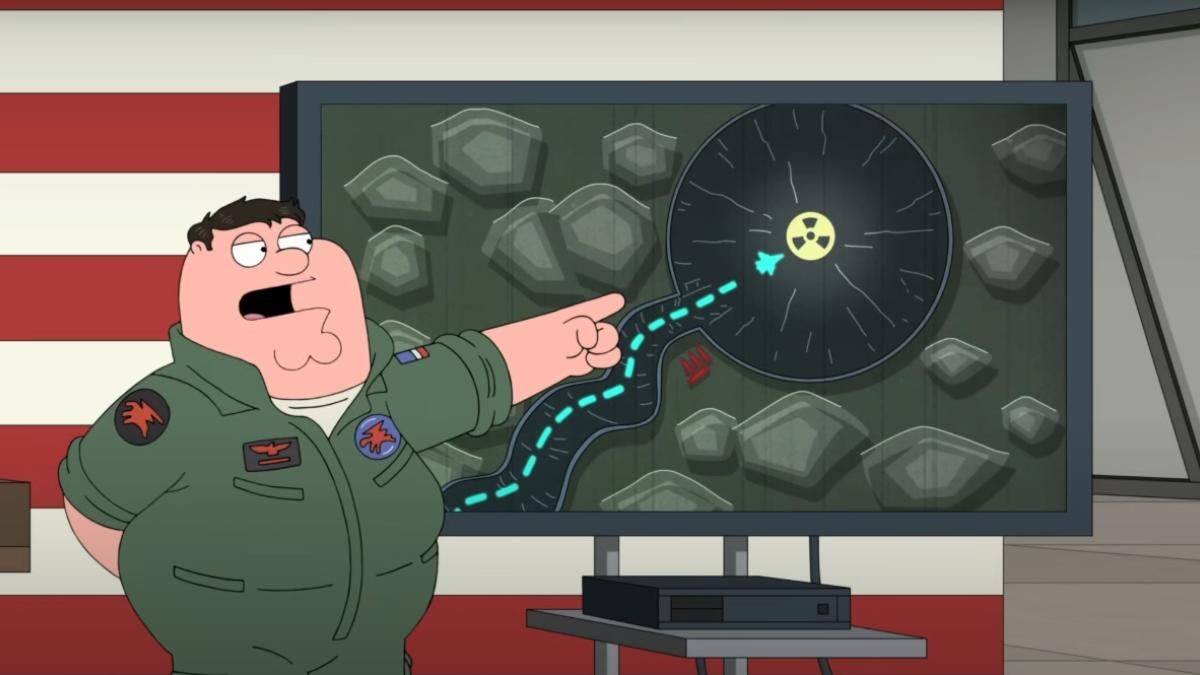Lisey's Story Review: A Mystical and Sluggish Trip to the Boo'ya Moon
To say that Lisey's Story is one of Stephen King's more complex, layered, and personal stories [...]
To say that Lisey's Story is one of Stephen King's more complex, layered, and personal stories would be a bit of an understatement, as the author himself has expressed on multiple occasions that it's one of his favorite novels that he's written. Inspired by his own bouts with pneumonia and hospital stays, in which he returned home to see that his wife Tabitha had reorganized his office and inadvertently created the ominous feeling that he was witnessing how she would cope with his passing, King would go on to write his novel to work through not only those feelings of loss, but also the role his wife played in his own career. Regardless of what King went through as he wrote hundreds of stories over the decades, his wife Tabitha was with him at both the start and end of these journeys, with Lisey's Story also tackling the differences in obligations to your romantic partner and to your fans, with some magical realism thrown in there for good measure. Apple TV+'s adaptation of the novel manages to hit the book's major bullet points and does so with gorgeous cinematography, but King was so invested in the project, he wrote all eight episodes himself, resulting in an overlong experience that could have served itself better with a more expedited journey.
Two years after the death of her husband, Lisey (Julianne Moore) has a hard time coming to grips with Scott's (Clive Owen) passing, when a chance discovery leads her on a scavenger hunt seemingly set up by him from beyond the grave. With each clue comes both a wonderful memory as well as a dark recollection about her husband that she had attempted to erase, which includes a history of family trauma and a fantastical land in which Scott would escape to, which he nicknamed the "Boo'ya Moon." Adding another unsettling element to Lisey's journey is one of Scott's most passionate fans seeking the unpublished manuscripts Lisey has, with Jim Dooley (Dane DeHaan) not letting anything come between him and the only relics left of his favorite author.
Despite having written the inspiration for dramatic films like Stand By Me, The Shawshank Redemption, and Hearts in Atlantis, most audiences connect King with more macabre subject matter, given that a majority of his novels and short stories embrace darker corners of humanity and the otherworldly. Any fans unfamiliar with Lisey's Story might be taken aback by this adaptation, as almost the entire first half of the series focuses more on the connection between Lisey and Scott more than anything inherently unsettling. This isn't to say that there aren't still a number of bizarre events unfolding, yet anyone looking for horrors akin to IT or The Shining should be prepared for the (somewhat) more grounded subject matter than the disturbing tales being told on TV in recent years. For those more interested in the creepier components of the story, your patience will pay off by Episode 4 when there's a much stronger embrace of those elements.
Surely some fans might be disappointed that Lisey's Story falls more within the realm of magical realism in the spirit of The Green Mile than abject horror, though it's this unique niche that makes the story work. The grief of losing someone you love is a powerful thing, whether that's to a tragedy or any other separation, to the degree that you can truly feel like you are losing your grasp of reality. To an extent, that's an objective truth, that if you spend years sharing your life with someone and you lose them, the reality you lived in has shattered. Lisey's Story merely heightens that concept, blurring the lines between reality, memories, and entirely different realms. It also explores how the connections you share with the people in your life, whether they be romantic or familial in nature, can take on an almost magical quality, making even the most impossible of events seem like an expected occurrence.
Lisey's Story presents a number of compelling ideas about relationships, largely about how you're potentially doing your partner a disservice by not remembering them completely. Early in the story, Lisey grieves over Scott to an almost unhealthy degree, despite having clearly blocked out some of the more disturbing things he's told her. Over the course of his posthumous "Bool Hunt," Lisey remembers those traumatizing experiences Scott recalled to her that he has lived through, ones that she even admitted at the moment that she would do her best to forget. The further this Bool Hunt goes, the more she remembers, culminating in the reveals of secrets that she never could have grasped when she first embarked on the journey to reconnect with her late husband. It's clear that King, who not only faced health struggles like a near-fatal car accident and bouts with pneumonia, but also grappled with substance abuse over the years, knew that Tabitha seeing him at some of his lowest points sparked a connection no one else could come close to having with him, as Lisey's Story hammers the point home that, to accept someone at their best, you have to accept them at their worst.
In addition to his predilections towards unsettling subject matter, another trend even the most devout King fan can admit to are that his stories can become rote, at times, taking a couple hundred more pages to tell a story than a reader might have needed. Whether it was due to the personal nature of the story and not wanting to omit anything clearly dear to the author, or the fact that King himself wrote this series, the eight-episode series suffers the same fate of those novels, in that we don't find ourselves more endeared to these characters by spending as much time with them as we do, as our connection would have been just as strong with six episodes. This is, of course, a credit to King and the characters he created that we can so passionately invest in their journey with minimal scenes, but given that we know there are fantastical elements at play, the series can frustrate audiences with extended flashbacks between Lisey and Scott. It ultimately does the narrative a disservice to spend so much time with these characters, slowing down its organic narrative momentum.
Expectations and bloated length aside, largely everything about Lisey's Story still works as well as the novel. Moore's work walks the line of despondent and irrational as necessary, while also being warm and welcoming in her character's flashbacks with Scott. Lisey and her sisters, played by Joan Allen and Jennifer Jason Leigh, create a compelling triad that both support and grate against one another in ways only sisters could, creating a believable yet troubled dichotomy. Other than Moore, DeHaan becomes the standout of the series, with his Jim Dooley being chillingly grounded, passing for any passionate fan you might come across, only to heighten that detachment from reality to horrifying degrees when necessary, all while seemingly being devoid of emotion. As a whole, the entire all-star ensemble lives up to expectations, leaving us to hope this isn't their only foray into the world of King adaptations.
The true highlight of the series is inarguably director Pablo Larraín, who manages to inject every scene with a mystical and ethereal quality, whether we're witnessing a conversation between sisters in a barn or watching horrifying events unfold featuring unearthly colors and creatures in a fantastical realm. His frames are so compelling and subtle, all while feeling bizarre yet human, that it's easier to lose yourself more in his cinematography than any conversations going on in a scene. Given the number of talented filmmakers who have tackled even the most ambitious King works, Larraín manages to set himself apart from his predecessors in a seemingly effortless way that never betrays the source material.
This adaptation of Lisey's Story makes a serviceable translation from script to screen, especially when it comes to the cast amplifying the appeal of the characters and the ways in which Larraín realizes King's vision. The setbacks of the series are ignited by the source material itself, as we spend enough time in the story's reality to wish we could be pulled away by the more fantastical elements, and vice versa. The personal nature of the story will also make it more difficult to engage with if you can't relate to any of the connections on screen, which is surely a possibility, due to the subtleties and intimate nature of these dynamics. The length of the series can make consuming it feel like a chore, possibly heightened by the week-long waits between episodes, but King fans who seek an effective adaptation of one of his most unconventional narratives will surely want to dive into the deep end of Lisey's Story and its Boo'ya Moon.
Rating: 3 out of 5
Lisey's Story premieres on Apple TV+ on June 4th.




